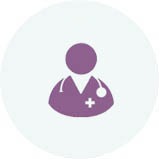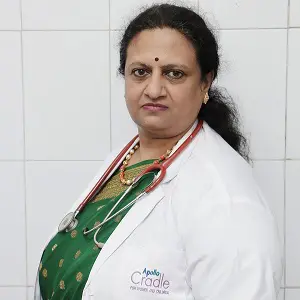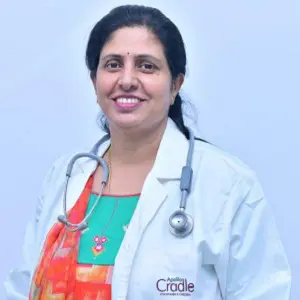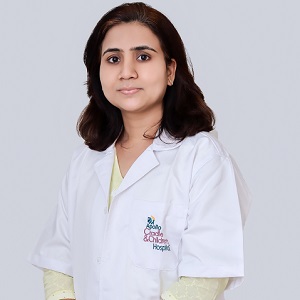Gynaecology
Gynaecology is the branch of medicine that deals with the health and well-being of the female reproductive system. Regular visits to a gynaecologist are important for maintaining reproductive health and preventing diseases. In this article, we will discuss the things to discuss with your gynaecologist and the questions everyone visiting a gynaecologist should ask.
What to discuss with your gynaecologist
- Menstrual Health: Your menstrual cycle is an essential indicator of reproductive health. Discuss with your gynaecologist any irregularities in your menstrual cycle, such as heavy bleeding, missed periods, or painful cramps. Your gynaecologist may recommend hormonal therapy or other treatments to regulate your menstrual cycle.
- Contraception: If you are sexually active and do not wish to conceive, you must discuss contraception options with your gynaecologist. There are various methods of contraception, such as pills, condoms, intrauterine devices (IUDs), and patches. Your gynaecologist can help you choose the right method for you based on your health, age, and lifestyle.
- Sexual Health: Discuss your sexual health with your gynaecologist, including any concerns related to sexually transmitted infections (STIs). Your gynaecologist may recommend STI screening and preventive measures such as vaccination against the human papillomavirus (HPV), which can cause cervical cancer.
- Pregnancy and Childbirth: If you are planning to conceive or are already pregnant, discuss your pregnancy and childbirth plans with your gynaecologist. Your gynaecologist can provide you with preconception counselling, prenatal care, and childbirth options.
- Menopause: Menopause is a natural transition that occurs in women around the age of 50. Discuss with your gynaecologist the symptoms of and treatments for menopause, such as hormone replacement therapy.
How often should I schedule routine gynaecological checkups?
The frequency of routine gynaecological checkups depends on your age, health, and medical history. The American College of Obstetricians and Gynaecologists recommends that women have their first gynaecological checkup at the age of 13–15 or when they become sexually active. After that, women should have a gynaecological checkup at least once a year or as recommended by their gynaecologist.
Benefits of regular gynaecologist visits
Regular visits to a gynaecologist are crucial for maintaining reproductive health and preventing diseases. It is essential to discuss your menstrual health, contraception options, sexual health, pregnancy and childbirth plans, and menopause with your gynaecologist. Additionally, asking the right questions can help you make informed decisions about your reproductive health. Always remember to schedule routine gynaecological checkups to ensure optimal reproductive health.
The American College of Obstetricians and Gynaecologists recommends that women start getting screened for cervical cancer at the age of 21 or within three years of the first sexual encounter, whichever comes first.
Conclusion
Every stage of a woman's life comes with changes and different health issues. It is crucial to move past the embarrassment and understand the need to consult a gynaecologist regularly. From teenagers to senior citizens, gynaecologists deal with a range of age-related issues and are equipped to deal with whatever medical problems you may be facing.
Request an appointment at Apollo Cradle, Bengaluru - Koramangala. Call 1860-500-4424 to book an appointment.
Your risk for developing cervical cancer depends on various factors, such as age, sexual history, and family history. Women who are sexually active and have a family history of cervical cancer are at higher risk.
The best contraceptive option for you depends on your health, age, and lifestyle. There are various methods of contraception, such as pills, condoms, intrauterine devices (IUDs), and patches. Your gynaecologist can help you choose the right method based on your needs and preferences. Each method has its benefits and side effects, and your gynaecologist can discuss these with you and help you make an informed decision.
The early signs and symptoms of sexually transmitted infections (STIs) vary depending on the type of infection. Common symptoms include discharge, itching, burning, and pain during urination. However, many STIs do not cause any symptoms, so it is essential to get screened regularly if you are sexually active. Preventive measures for STIs include using condoms, getting vaccinated against HPV, and limiting sexual partners.
Menopause is a natural transition that occurs in women around the age of 50. Common symptoms include hot flashes, mood changes, and vaginal dryness. Your gynaecologist can help you manage the symptoms of menopause, which may include hormone replacement therapy. However, hormone replacement therapy has potential risks, such as an increased risk of breast cancer, blood clots, and stroke. Your gynaecologist can discuss the potential benefits and risks of hormone replacement therapy with you and help you make an informed decision.

 93% Patient Satisfaction Score
93% Patient Satisfaction Score



























